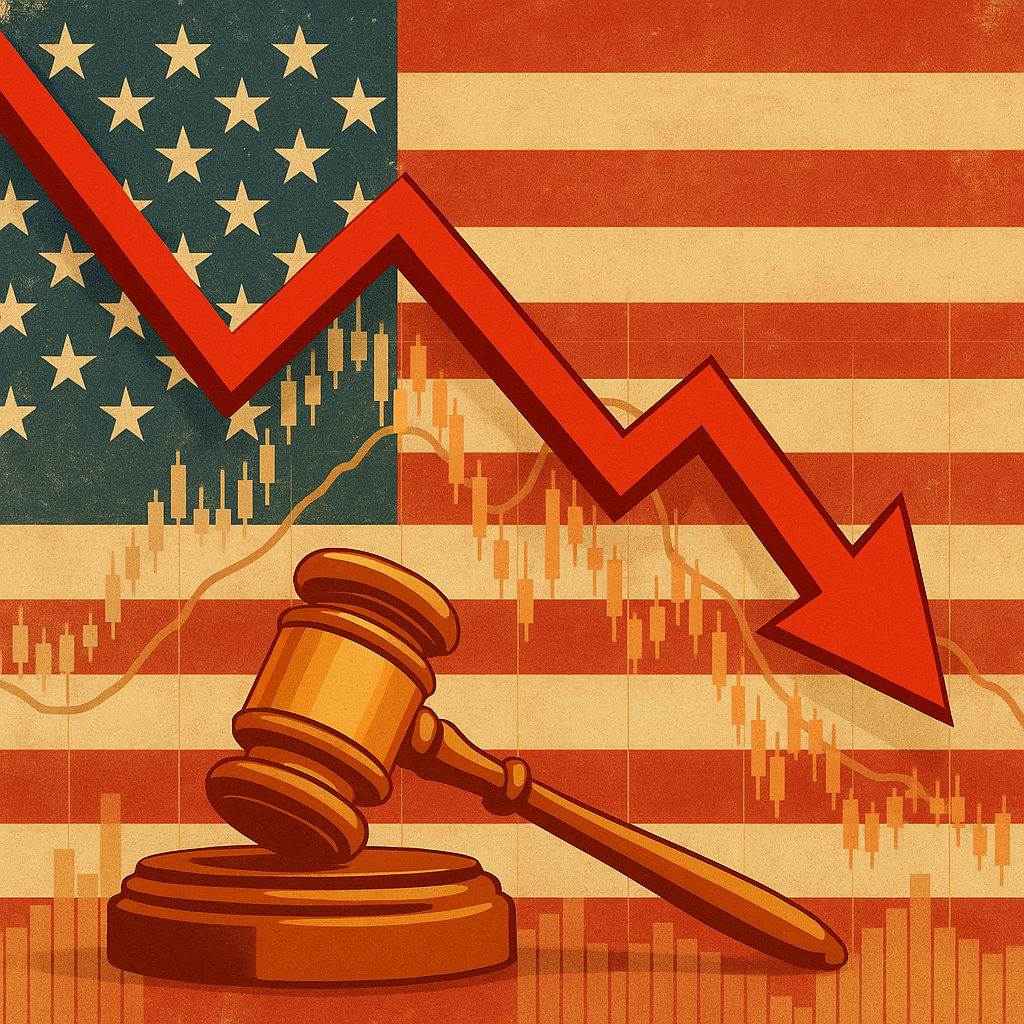Investors Hit the Brakes on a Once-Hot Trade Strategy as Tariff Jitters Return
After a short-lived market rally, investor sentiment has cooled significantly as uncertainty around tariffs—and the broader ‘TACO’ trade—casts a shadow over U.S. markets. The term ‘TACO’—an acronym for Tariffs, Automation, China, and Oil—has become shorthand for a thematic investment strategy focusing on global trade tensions, supply chain shifts, and resource realignment.
But with fresh tariff rhetoric from former President Donald Trump roiling headlines and investor dashboards once again, traders are pulling back. The volatility has prompted a reconsideration of exposure to sectors and themes affected by unpredictable policy shifts.
What’s Driving the Market Pause?
According to Fortune (May 28, 2025), investors have stopped chasing the TACO trade after a one-day bounce, wary that tariff news from political leaders—particularly Trump—could be more than just campaign noise. Trump recently floated steep tariff hikes on Chinese imports if reelected, a message that has created unease in already fragile supply chains and heightened geopolitical tensions.
Markets, which initially rallied on the perceived resilience of the U.S. economy, are now bracing for the possibility of retaliatory measures from trade partners. The S&P 500 saw a slight pullback this week, with industrials, consumer electronics, and manufacturing stocks among the hardest hit. The uncertainty is affecting long-term positioning strategies and fueling a broader reevaluation of the TACO theme.
Why This Matters for Investors
The TACO trade has been popular among hedge funds and institutional investors over the past two years, as the global economy realigns post-pandemic. Tariff policy, automation in supply chains, shifting relations with China, and energy independence have been powerful narratives—until now.
With U.S. political rhetoric again centering on protectionist trade policies, investors face elevated risk in sectors sensitive to tariff changes, such as semiconductors, industrial manufacturing, and raw materials. At the same time, companies betting on nearshoring and automation could benefit, but timing is critical.
Goldman Sachs has warned that tariff-driven inflation risks could pressure earnings in Q3 and Q4, especially in retail and consumer-facing sectors. Meanwhile, Morgan Stanley analysts suggest that a “wait-and-watch” approach is prudent until post-election policy clarity emerges.
Sector Snapshot: Who’s at Risk and Who Might Gain
- At Risk:
- Consumer Goods: Exposure to Chinese supply chains makes brands like Apple, Nike, and Walmart vulnerable to cost spikes.
- Industrials & Manufacturing: Increased tariffs could disrupt parts sourcing and delay production timelines.
- Tech Hardware: Semiconductors and telecom hardware firms reliant on Asian manufacturing face margin compression.
- Potential Gainers:
- Automation and AI Firms: Companies driving labor-saving solutions and reshoring capabilities may benefit.
- Domestic Oil & Energy: If international supply tensions rise, U.S.-based energy firms could see renewed investor interest.
- Logistics and Infrastructure: U.S. firms aiding domestic production and transport infrastructure could receive increased capital flows.
Key Investment Insight
In the face of escalating tariff talk and political posturing, investors would be wise to hedge exposure to vulnerable import-dependent sectors and consider reallocating toward domestic, automation-driven, or tariff-resilient businesses. Portfolio flexibility will be essential in the months ahead.
Monitoring geopolitical headlines is no longer optional—it’s a key part of navigating today’s markets.
Stay Ahead with MoneyNews.Today
As the 2024-2025 political cycle continues to shake up markets, count on MoneyNews.Today to deliver sharp, timely analysis that helps you protect your capital and uncover new opportunities.





